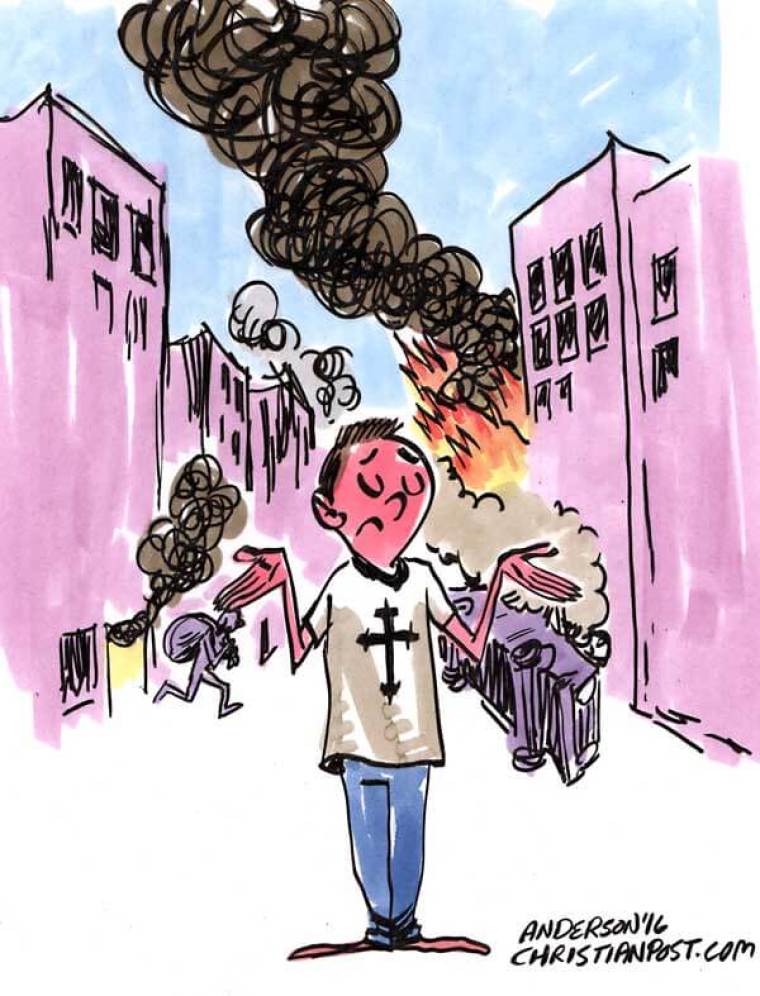
Though some religious teachers believe global events in the Middle East could fulfill prophecies about the end of the world, pastors are three times more likely to believe evangelism efforts will quicken the return of Jesus Christ, a recent study has found.
A study of 1,000 Protestant pastors conducted between Aug. 20, 2019, and Sept. 24, 2019, by LifeWay Research found that church leaders believe Christians can speed up the return of Christ by sharing the Gospel rather than by backing certain geopolitical changes mentioned in biblical prophecy.
“While Scripture specifically says we cannot know the day or the hour of Jesus Christ’s return, we were interested in pastors’ views on whether Christians can play a role in bringing about that return any sooner,” LifeWay Research executive director Scott McConnell noted.
Just 1 in 8 Protestant pastors (12%) believe Christians can speed up the second coming of Jesus by supporting geopolitical changes mentioned in the Bible, with 5 percent strongly agreeing.
Eight in 10 pastors (80%) don’t believe their support will have an impact on the timing of Christ’s return, including 61% who strongly disagree.
Interestingly, in 2013, amid escalating conflicts with Syria, a larger percentage of Americans believed it was part of the Bible’s plan for the end times. One in four believed that a possible U.S. attack on Syria could lead to the Battle of Armageddon, and one in five believed the world would end in their lifetime.
At the time, the survey found that 32% of those polled agreed with the statement, “I believe the battles in Syria are all part of the prophecies of the book of Revelation.” Forty-nine percent disagreed.
“Almost 1 in 3 saw the conflict as part of the Bible’s plan for the end times,” the 2013 LifeWay Research study said. “One in 4 thought a U.S. military strike in Syria could lead to Armageddon, and 1 in 5 believed the world would end in their lifetime — including 32% of evangelicals.”
But in the most recent study of Protestant pastors, there was “no significant difference between mainline and evangelical pastors regarding their views about international political affairs speeding up the return of Christ,” according to Lifeway.
In the Great Commission (Matt. 28:19-20), Jesus tells His followers to “make disciples of all nations.” Lifeway notes that this verse is often understood as a command to spread the faith to all distinct people groups.
Previously in Matthew’s Gospel, Jesus connects this occurring to his second coming. “This good news of the kingdom will be proclaimed in all the world as a testimony to all nations, and then the end will come” (Matt. 24:14 CSB).
Still, a relatively large minority of pastors see a connection between spreading the Word and when Christ will come back. Close to 2 in 5 (41%) believe Christians can hasten Jesus’ Second Coming through world evangelism, while around half (54%) disagree, the study showed.
“The Great Commission was a task Jesus gave His followers to be doing while He is gone,” said McConnell. “Four in 10 pastors believe the pace of sharing the message of what Jesus has done will impact the timing of Christ’s return. Presumably many of those who disagree would assert exclusively divine control over Christ’s return.”
However, the majority of Protestant pastors agree immorality will be more common until Jesus returns: Almost 7 in 10 (68%) agreed with the statement “culture will increasingly get less moral until Jesus Christ returns,” and around a quarter (26%) disagree.
Evangelical pastors (80%) are far more likely to agree than mainline pastors (51%). Pastors 45 and older (71%) are more likely to agree than younger pastors (62%).
“On the surface, the responses of most pastors could be described as feeling helpless regarding these specific aspects of the future,” McConnell concluded. “Yet the persistence of their faith amidst a lack of control points to an even greater level of hope.”
In general, predictions about the end times tend to be more common among charismatic pastors and church leaders who believe God uses signs and miracles in the modern world.
John Hagee, Pat Robertson, and the late Jack Van Impe are among popular pastors who have pointed to recent Middle East conflagrations, such as the U.S. invasion of Iraq and the war in Syria, as fulfilling biblical prophecy of the end times.
But conservative pastors and Bible teachers have cautioned against excessive speculation regarding the timing of Jesus Christ’s return to Earth.
“The Lord’s people rightly look forward to the Parousia (Second Coming). But I would suggest greater caution because the same sort of comments have been made by prophecy enthusiasts throughout church history,” Kenneth R. Samples, the senior research scholar of philosophical and theological apologetics at Reasons to Believe, said.
“Many, unfortunately, went further and set dates that were wrong — causing nonbelievers to doubt the truth of the Christian faith. Just in the last 50 years alone, several prominent Bible teachers have set dates and acted, in my opinion, eschatologically irresponsible, and evangelical Christianity’s credibility suffered because of it,” he added.
Dr. Floyd Elmore, professor of theology at Southern Evangelical Seminary in Matthews, North Carolina, previously told The Christian Post that is not possible to have absolute certainty on a connection between current events and the Bible’s plan for the end times.
“Since the Lord said ‘no man knows the day or the hour when He comes,’ I don’t really think that anyone can say with absolute certainty that these specific events are going to lead to the end times Catastrophes,” said Elmore.


